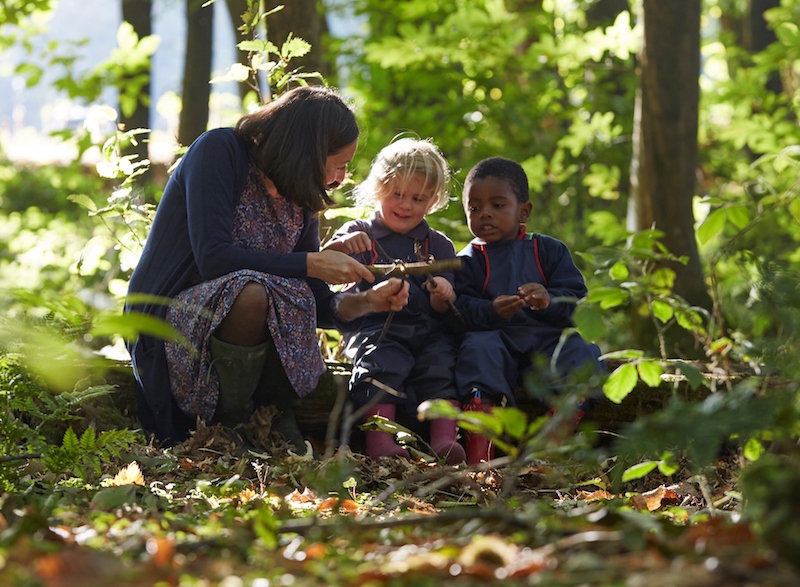Make Forest School a phenomenon
Posted on 12th Feb 2020 in School News, Outdoor Learning
Sophie Baber, Headteacher at Brookham School in Liphook, explains why Forest School is at the heart of an education at Highfield and Brookham School...
Forest School and bushcraft have been an integral part of Highfield and Brookham’s curriculum for as long as the schools have been in existence. For Highfield that equates to 113 years of educating children in our stunning grounds and Brookham has taught children through nature-based learning for 28 years.
For most schools in this country, Forest School is a relatively recent concept that has been adopted from Scandinavia and Germany. Its theory is relatively straightforward; at its very simplest, trained practitioners lead the learners to explore and discover the natural world. The advantages to children of learning outside are well documented; a quick search on the internet will highlight the many benefits for the individual child. By running around, getting dirty children are developing confidence, independence, physical fitness, risk management and empathy for nature to name a few benefits.
These in themselves are excellent reasons to ensure that our children are introduced to Forest School as part of the curriculum. There are some serious issues that Forest School can help to address. With only 75 minutes of compulsory PE in the primary curriculum, one can understand why childhood obesity is on the rise; 1 in 9 children between the ages of 5 and 15 have a mental disorder and this is rising. These are disturbing facts that cannot be ignored; however, I would argue that there is an equally pressing and global issue that makes this way of teaching increasingly vital… climate change.

I have to confess to being one of the people who were up in arms when I heard that acorn, buttercup, blackberry and crocus were being removed from the Oxford Junior Dictionary. To some, I may appear to be a nimby, but I can assure you that this is far from the truth. I have real concerns that the thousands of young people who took to the streets to campaign against climate change in this country will be hoodwinked, if they do not know what they are fighting to protect. Catkins, chestnuts and conkers have been a part of the British countryside and young people’s childhood experiences for years, but have also disappeared from our vernacular. Sadly, rather than the education system seeing this as a call to arms, to change our curriculum and ensure their survival, they too have been cut, like dead wood, from the dictionary.
We must make sure that, as curriculums are being reviewed, the environment and outdoor education stay at the forefront of our minds. Unfortunately, policy change takes a significant period of time. Therefore, I challenge parents, teachers and schools across the country to fight for our countryside and our planet’s future by educating our young children outdoors. You do not need to be a qualified Forest School practitioner to do this. Learn about circumference by measuring tree trunks; create stunning artwork using sticks and the beautiful autumnal leaves; develop fine and gross motor skills by building a den. The list of activities is only limited by your imagination.
If you would like to find out more about Forest School at Highfield and Brookham Schools why not come along to their FREE Forest School morning on Friday 13th March. Book your free place at highfieldandbrookham.co.uk/forest-school